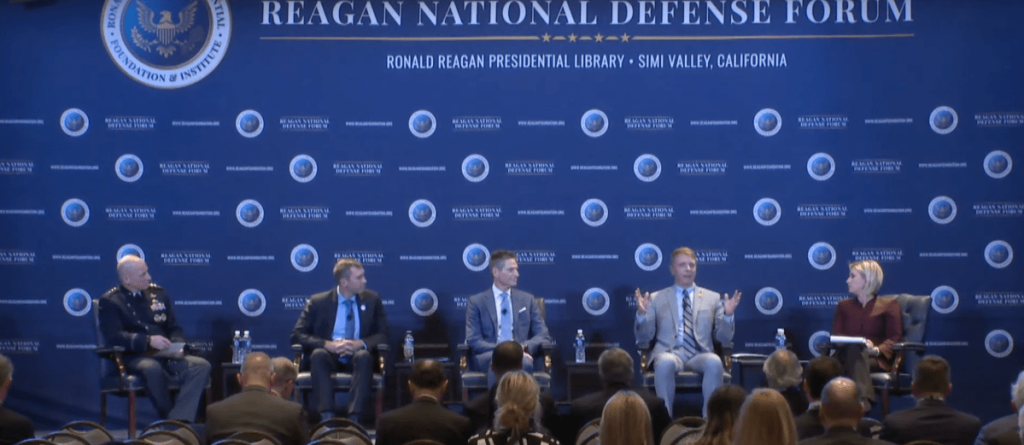
U.S. Space Force official warns of rising Chinese threats (Image Credit: Space News)
WASHINGTON — The vice chief of space operations for the U.S. Space Force, Gen. Michael Guetlein, issued a stark warning this weekend about China’s accelerating advances in space technology and its growing capacity to challenge the United States’ dominance in orbit.
Speaking Dec. 7 at the Reagan National Defense Forum in Simi Valley, California, Guetlein described the evolving space environment as increasingly hostile, marked by the erosion of longstanding norms and the emergence of new threats to U.S. space assets.
“The adversary is quickly shrinking that gap, and we have got to change the way we approach space pretty rapidly,” Guetlein said. “Today that capability gap is in our favor, but if it goes negative on us, it’s going to be a really bad day.”
While Guetlein refrained from specifying particular Chinese actions, he painted a picture of a dramatically altered strategic landscape. In the past, there was a tacit “gentleman’s agreement” not to interfere with each other’s space systems, Guetlein said. But today, that restraint has dissolved, giving way to increasingly bold tactics such as jamming GPS signals, spoofing satellite communications, conducting cyberattacks, and deploying unmanned surveillance aircraft.
“This new norm of behavior is very unsafe and unprofessional,” Guetlein said, warning that such activities could escalate into major strategic crises if left unchecked.
China’s space ambitions have been well-documented in recent years. Its military space program has developed anti-satellite weapons, advanced satellite jammers, and other capabilities designed to disrupt U.S. satellites critical to navigation, communication, and missile defense. Experts say such capabilities could undermine the United States’ ability to project power in a conflict.
Space Force’s response
Guetlein emphasized that addressing the threat will require a fundamental shift in how the United States approaches space operations, especially given the Space Force’s relatively modest budget and size. Key to this strategy, he said, will be closer collaboration with international allies and commercial industry — a break from Cold War-era thinking when the Pentagon was largely self-reliant.
“In the past, we didn’t believe we could count on our commercial partners and international partners during times of crisis,” Guetlein said. “That has completely changed.”
Central to this new approach is the Space Force’s proposed Commercial Augmentation Space Reserve (CASR) program. Under CASR, private companies would contractually commit to providing satellite services to the military during emergencies, even if it means prioritizing military needs over commercial customers. Guetlein described this as a cost-effective way to ensure access to critical space capabilities during crises.
“We’re trying, with very limited resources, to get after an enormous demand signal coming out of our joint force,” he said.
However, the program has yet to award contracts, and details about its funding and scope remain unclear.
Congressional backing
Rep. Rob Wittman (R-Va.), who also spoke at the Reagan Forum, expressed strong support for CASR, emphasizing its importance in leveraging commercial and allied capabilities to maintain a strategic edge.
“It shouldn’t just be about satellite services,” Wittman said. “We have to make sure it includes launch vehicles. We have to make sure that our reserve is there to where, if called upon tomorrow, we could respond at the speed of relevance.”
Wittman urged the Space Force to ensure the program is comprehensive and prepared to respond to threats swiftly.
He said the urgency is compounded by China’s growing willingness to challenge the U.S. in space. Beijing has launched a record number of satellites in recent years and demonstrated technologies like satellite grappling arms and orbital debris removal systems, which could be repurposed as weapons.
Guetlein’s warning comes as the Space Force continues to advocate for more funding and resources to address these threats.
“We must act now to ensure that the capability gap doesn’t shrink to zero — or worse, go negative,” Guetlein said.

